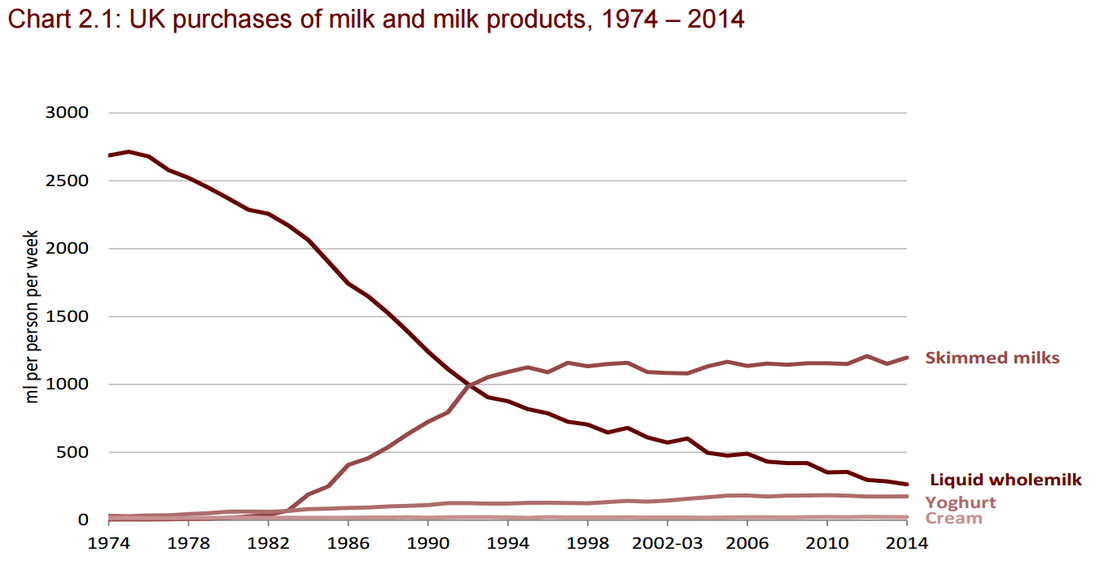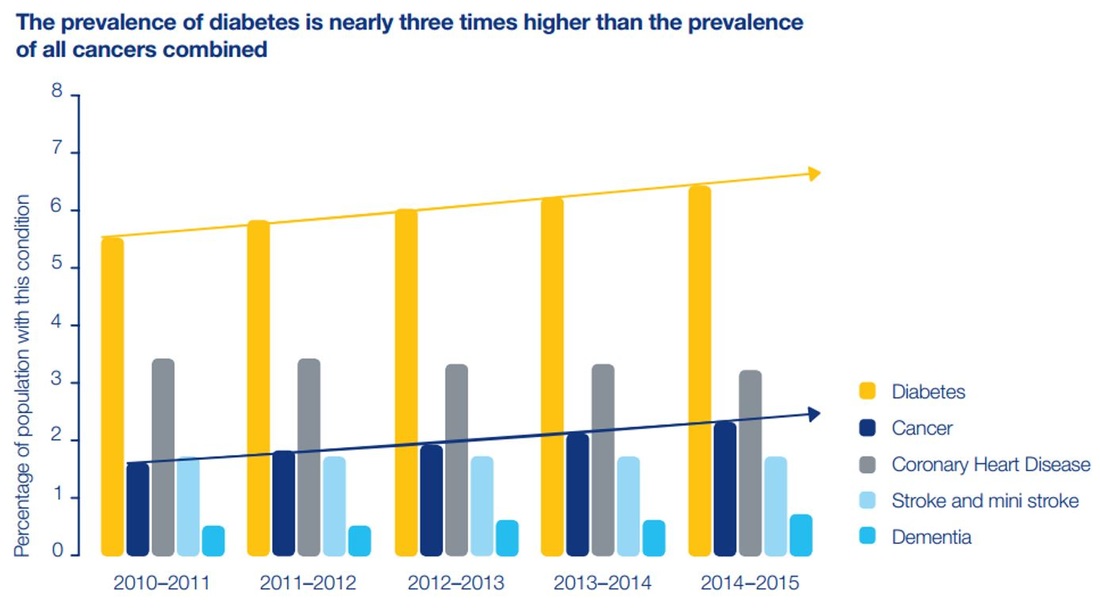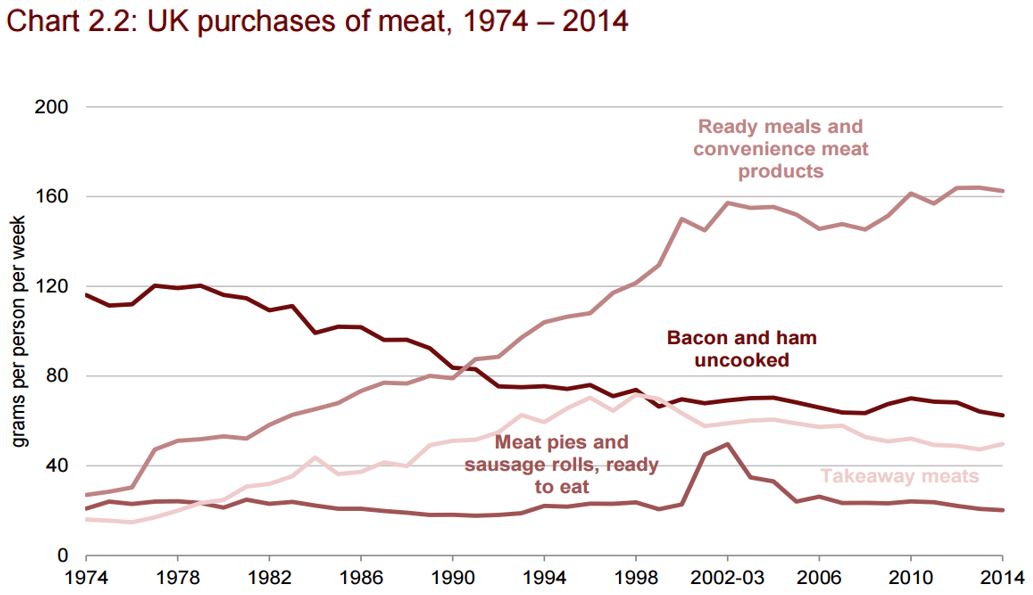|
An open letter Dear Mr Average: I know you don’t exist. The ‘average’ British citizen is only the sum total of what all Brits do divided by the total population. And yet I suspect that there are enough of you out there who fit the bell curve statistic, which indicates that 30-50% only vary in small ways from that average. So please forgive my impertinence and allow this small interruption in your eating life. You see: The conventional dietary/nutrition establishment would have you believe that you eat too much, particularly those nasty animal fats, and that you probably don’t exercise enough. That’s why over the years, if you are indeed an ‘average’ Brit, you have steadily been putting on the pounds; and as you'll know, increased weight is associated with various chronic diseases, notably certain cancers, Alzheimer’s and type-2 diabetes.  From the Conde Nast Collection From the Conde Nast Collection Obedient citizens To counter this, you may well have been prescribed fitness programmes and were probably also told to drink fat-free milk, eat less red meat but more chicken, use more vegetable oils and above all, avoid bacon and salt. This message started about 40 years ago and was officially formalized in the first UK food guidelines that were issued over 20 years ago. Now, the British public is not usually seen as being a pushover, a nation peopled by those who unquestionably do just what they are told. But in this case, the funny thing is – well it’s not at all funny really; that is exactly what you’ve done. As obedient citizens, you have followed the dietary guidelines and as an unintended consequence, you are getting fatter and ‘iller’, if that word exists. Some bad joke! The real and surprising facts are: 1/ You eat less food in total than you did 40 years ago – not more. 2/ You eat much less of that bad beef, lamb and pork. 3/ You eat much, much more ‘healthy’ white meat (chicken). 4/ You have cut right back on butter and cheese. 5/ You eat much less bacon and ham. 6/ You have almost stopped drinking regular milk because it’s full of saturated fat which clogs your arteries …and, and, and. 7/ You’ve even cut back on salt Yet incidences of diabetes and cancers continue to be on the rise, as is dementia which an increasing number of doctors refer to as type-3 diabetes. And, incidentally, the mortality statistics for heart disease and strokes have barely changed in recent years. “But aren’t we all just living longer so that disease is inevitably catching up with us?” I hear you say. Well, no. The highest prevalence of diabetes is with overweight 15-54 year olds, not among the oldest in our society. Something is making us ‘iller’, younger. Less meat, less dairy, less fat but more chronic disease? Since 1974, beef sales per person per week have almost halved to around 100 grams, and that’s down from 250 grams in post-war Britain (1950). Lamb and mutton sales are down by over two-thirds and as for milk, you’ve fundamentally changed your habits because of that fear of fat imposed by the so-called nutrition experts. The same change which has led you to believe that drinking semi-skimmed milk is quite normal, is also reflected in lower butter and cheese sales and your decision to switch from cooking with animal fats to using vegetable and seed oils. So called ‘healthy’ white meat in the form of chicken has exploded onto the scene with intensively (mostly) produced birds providing your main source of meat at 300 grams per week in all its many forms from Sunday roasts to chicken nuggets. Compare that to 1950 when you (or your parents or grandparents) used to eat around 19 grams of chicken per week. The real problem is staring you in the face Highly processed foods in the form of ready meals and snacks have completely changed how you eat and together with take-away food, they now represent around half of what you eat. Along with the huge increase in vegetable seed oils such as sunflower, corn and soy, they represent what has changed most in your diet and… to be frank, it’s not doing you any good. The decline in family meals certainly plays a role as does your desire to eat regular snacks which is now seen as normal. Long gone are the times when at about 3 pm in the afternoon, the office tea-lady would wheel round a cuppa and a piece of home-made fruit cake for that once daily snacking opportunity! More recently of course, sugar has begun to get a bad rap and in larger doses, it certainly is not good for you. But only when sugar is combined with all those artificial sweeteners, stabilizers, emulsifiers and flavour-enhancers before being made into ready-made meals, soft drinks and snacks do you run into real problems. Grandma’s home-made jams, cakes and crumbles may have used some sugar but first, they represented occasional treats, and second, they brought out the best of nature’s natural bounty. Where can I get sensible, fact-based advice? There is help at hand. The Public Health Collaboration has been established by a group of doctors and well-informed nutritionists with their feet firmly placed on the ground, and their sensible advice on how to eat and what to eat is available at www.phcuk.org. They also provide links to where you can get the best advice if you are either over-weight or suffering from the early stages of type-2 diabetes. Although those well-meaning folks who designed the original food guidelines and current Eatwell Plates meant no harm, they did not fully check their facts or examine the research back to its origins. The PHCUK members have come to understand that you are not getting ‘iller’ because you don’t follow the guidelines. It is much more likely that you are less healthy precisely because you have been following the guidelines. Main Source:
https://www.gov.uk/government/uploads/system/uploads/attachment_data/file/485982/familyfood-2014report-17dec15.pdf Next annual update due soon: Dec 2016
3 Comments
|
Sammy Pepys"FAT IS OUR FRIEND" ADVOCATES A DIET: Sammy Pepys was the pseudonym used by James Capon when writing this book. He is not a doctor or a nutritionist but has studied nutrition and holds an MPH from Edinburgh University. Over the years, he has become increasingly suspicious of today's conventional wisdom about diet and health. When it comes to what we eat, he has helped many learn to eat more healthily.
Archives
May 2020
CategoriesArchive
|
||||||||||||||||||||||||
| 1_blog_march_2014.docx | |
| File Size: | 546 kb |
| File Type: | docx |
| 2_blog_april_2014.docx | |
| File Size: | 245 kb |
| File Type: | docx |
| 3_blog_may_2014.docx | |
| File Size: | 642 kb |
| File Type: | docx |
| 4_blog_june_2014.docx | |
| File Size: | 426 kb |
| File Type: | docx |



 RSS Feed
RSS Feed